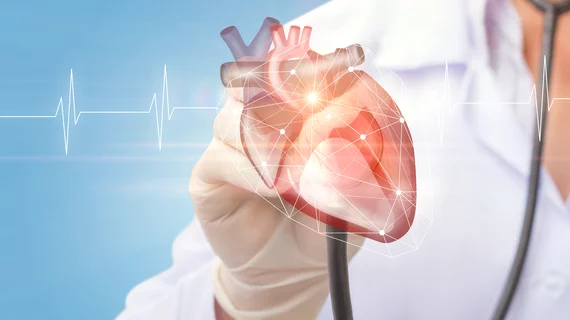‘Cardioskin’ T-shirt tracks heart rhythm around the clock
French pharmaceutical company Servier has partnered with Bioserenity to launch a “smart T-shirt” they’re calling the Cardioskin—a wearable innovation that would allow heart patients to monitor their cardiac rhythm throughout the day, the Daily Mail has reported.
Cardioskin, made from a cotton base, tracks heart rhythm using a series of 15 electrodes that are strategically sewn into the shirt, according to the Mail. The electrodes are battery-operated, and a small chip in the Cardioskin’s fabric wirelessly transmits data from the shirt to an app on the patient’s smartphone.
The app generates easy-to-read charts and can transmit information directly to a patient’s doctor if necessary. It also reportedly alerts patients to abnormalities like atrial fibrillation and syncope.
The T-shirt doesn’t have a list price yet, but it’s been approved for sale in the U.K. and is expected to be made available for medical use later this year. It can be worn for 24 hours at a time and washed up to 35 times before it needs replacing.
“Cardioskin could be an important development for cardiologists,” Martin Cowie, a professor of cardiology at Imperial College London, told the Mail. “It is fantastic to see a new solution to the very real problem of diagnosing intermittent heart abnormalities that may explain serious conditions such as syncope or stroke.”
Read the full story from the Daily Mail below.

